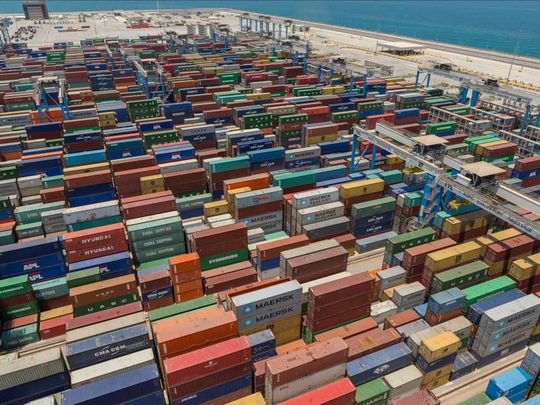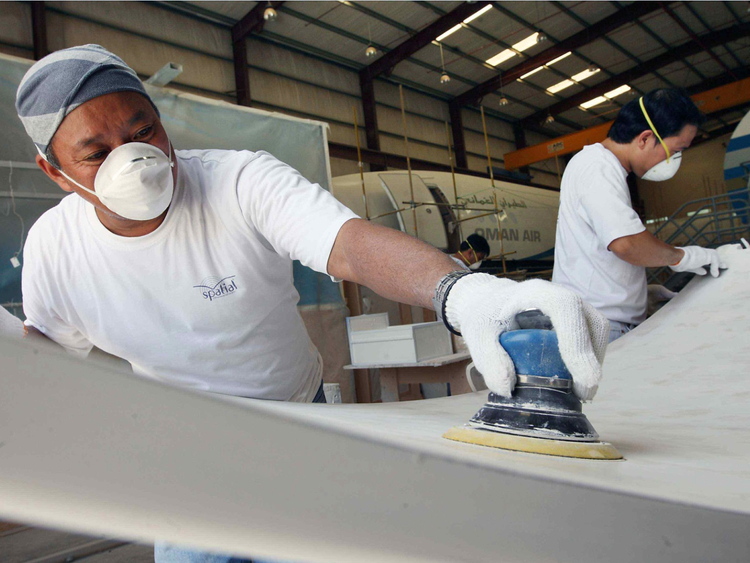
The UAE free trade zones have been set up to entice global businesses to this part of the world and provide them a hassle-free environment for manufacturing, trading and providing services. Setting up business is quick and inexpensive, and taxes are either minimal or non-existent.
Most free zones are centrally located and well connected to the country’s infrastructure network. Hundred per cent foreign ownership of a company, full import and export tax exemptions and full repatriation of capital and profits, no personal income taxes, and corporate tax exemptions for up to 50 years are some of the other benefits.
Though free zone companies are not entitled to trade directly with the UAE market, they can do so through local distributors, in which case a 5 per cent duty is collected.
37 and still counting
The UAE has 37 free zones with nine new ones being developed. Sectors range from goods trading, commodities, health care, education, information technology and finance to business services, media, advertising, vehicles and environment.
The good thing is that most zones operate special one-stop shop service centres that assist newcomers in processing legal requirements. Services include complete documentation for licensing, visiting various sites to determine whether they are suited to a client’s requirements, assisting in visa application and residence permit, as well as setting up a bank account. Full-service start-up packages range from Dh50,000 to relatively inexpensive options such as Dh25,000 in Sharjah or Dh15,000 in Ras Al Khaimah.
Since the establishment of the Jebel Ali Free Zone — the first one not only in the UAE but also the Gulf — in 1985, trade has flourished, attracting numerous foreign companies seeking to benefit from the commercial advantages and proximity to major regional markets in the Middle East, North Africa and South Asia.
The free zones also contribute largely to the diversification of the UAE’s economy. In 2014, they accounted for about a third of the country’s non-oil trade.
As per latest available numbers by the Federal Customs Authority, free zones accounted for trade worth Dh269.6 billion in the first six months of last year, as compared to Dh250.9 billion in the first half of 2013. For Dubai, there are full-year figures available that show free zones reached a trade value of Dh489 billion in 2014, which is forecast to grow by 5 per cent to Dh515 billion in 2015, according to WAM.
“Free zones play a key role in globalising and diversifying the UAE’s economy,” Sultan Bin Saeed Al Mansouri, UAE Minister of Economy, said at the International World Free Zone Conference and Exhibition held in Dubai earlier this year. “They adopt the principles of free trade and help stimulate trade and investment, as well as facilitate the transfer of skills, knowledge and technology.”
We take a look at the important free zones across the seven emirates.
Abu Dhabi
The capital’s main free zones are Abu Dhabi Airport Free Zone, Abu Dhabi Ports Company (Khalifa Port), Khalifa Industrial Zone, and Industrial City of Abu Dhabi.
The airport free zone is a logistics and business park aimed at cargo firms and logistics providers.
The port and the adjacent Khalifa Industrial Zone, one of the world’s largest greenfield port and industrial zone development projects, provide infrastructure for the growing industrial and commercial sectors of Abu Dhabi. At completion it could grow to more than 450 square kilometres, accommodating light to heavy industries, including base metals, chemicals, trade and logistics and building materials, as well as space for commercial, community and residential zones.
“We estimate that Khalifa Port and the Khalifa Industrial Zone together will create some 100,000 jobs and contribute 15 per cent of Abu Dhabi’s non-oil GDP by 2030,” said David Welch, President EMEA of Bechtel Corporation, at a recent reception at the American Chamber of Commerce Abu Dhabi. Bechtel, the US-based civil engineering giant, is the master planner and constructing firm of the port and the industrial zone, and the Khailfa Port and Industrial One is one of its biggest projects in the region.
Another addition is Industrial City of Abu Dhabi, located in Musaffah, southwest of Abu Dhabi and close to Abu Dhabi International Airport. Covering an area of 14
square kilometres, it addresses the needs of light industries.
Last but not least, the green research and sustainable technology-focused free zone of Masdar is aimed at environmental firms to help set up the world’s first cleantech cluster. And twofour54 free zone has been established to develop media and entertainment content.
Dubai
Dubai leads the segment in the UAE with 23 free zones and nine more in the making. Among the important ones — apart from the Jebel Ali Free Zone — are the Dubai International Financial Centre, which has developed into the region’s most prominent banking hub, and the Dubai Airport Free Zone for trade and logistics, one of the fastest-growing free zones in the region, which contributes 4.7 per cent of Dubai’s GDP.
Others include the Jumeirah Lakes Towers Free Zone, set up for commodities trading and other businesses.
Of the nine new ones being built, the one to watch is Dubai South, a huge logistics and aviation cluster with several free zones, coming up around the Al Maktoum International Airport.
Sharjah
Sharjah’s flagship free zone is the Hamriyah Free Zone comprising 22 square kilometres of prime industrial and commercial land and a 14-metre-deep port, which offers scope for expansion. The free zone’s authority emphasises that “almost any activity is permitted” in the free zone as long as it is environmentally friendly and in accordance with local rules.
One essential benefit is that it easily connects to Khor Fakkan, a big container trans-shipment port strategically located on Sharjah’s Indian Ocean coast outside the Straits of Hormuz.
Another is Sharjah Airport International Free Zone, hosting some 7,000 companies in the fields of IT services, media, consumer durables and more. Setting up shop in Sharjah’s free zones comes at about half the price of Dubai.
Ajman
Ajman Free Zone, one of the oldest in the UAE launched in 1988, focuses on trade and industrial firms, including textile, food, paper, wood, chemicals, metal and machinery. It has significant cost advantages compared to Abu Dhabi, Dubai and Sharjah.
Ras Al Khaimah
The emirate has three free zones: Ras Al Khaimah Free Trade Zone, Ras Al Khaimah Maritime City and Ras Al Khaimah Media Free Zone. The first focuses on light industries other than RAK’s main industries, cement, ceramics and pharmaceuticals and hosts 8,000 companies covering a range of sectors. The free zone has the most competitive start-up packages beginning at Dh15,000.
RAK Maritime City has developed into a regional ship and yacht manufacturing and repair hub, while the RAK Media Free Zone was set up to offer a cheaper alternative to Dubai Media City.
Umm Al Quwain
The Umm Al Quwain Free Trade Zone benefits from its capability to handle ocean-going vessels and provides land for light industrial development. Setting up a company is inexpensive, although the free zone is a bit remote.
Fujairah
Fujairah Free Zone focuses on trading, warehousing and manufacturing and promotes itself through its location on the east coast of the UAE, with good connectivity to Pakistan, India and Oman. Benefits include short business start-up time and low start-up and running costs.
Another small free zone is Creative City Fujairah, seeking to complement Dubai Media City and twofour54 of Abu Dhabi in media, events, consulting, education and communication and marketing.











